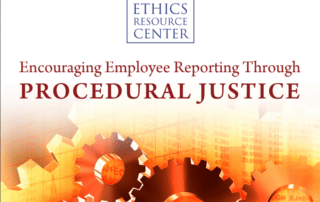Contained in this category are any whitepapers or working group reports that the Ethics & Compliance Initiative helped to create.
Conflicts of Interest
This report presents the best thinking on managing conflicts from a group of experienced E&C professionals from a variety of industries and organizations. It also includes results from a targeted survey of the full ECI membership (?the Survey?). Our focus is on identifying best practices and accompanying risks, as a guide to practitioners. In addition to the body of the report, we have put together an appendix with sample policy provisions and documents from leading organizations. The report is organized into four sections: 1. Defining Conflicts, 2. Preventing Conflicts, 3. Identifying Conflicts, and 4. Dealing with Conflicts. Each section touches on aspects of the others, so the report should be read as a whole.






